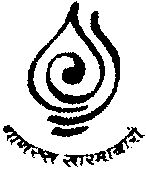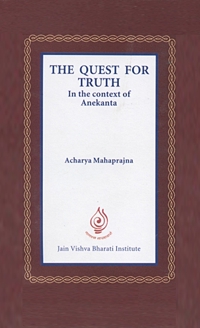
On the altar of economic progress, mental peace cannot be sacrificed. So it is absolutely essential to establish a compromise between economic progress and mental peace. This becomes even more urgent a need if man is to escape from mental tension, madness, cruelty, exploitation, usurpation of power and other highly detrimental streams of action. Only after visualizing such disastrous consequences did Mahavira postulate the limitation of cravings and placed before the people.
This postulate does not mean the giving up of basic necessities or amenities nor does it involve the proliferation of luxury consumption. The postulate of limitation of cravings is fundamentally different from the principle of unlimited wants in two respects. The first difference is that economics acquiesces with the production and consumption of luxury items. The following arguments are placed in support of it:
- The consumption of luxury items fosters social and economic development.
- Effort is rewarded.
- Standard of living improves.
- Wealth accumulates. In difficult times (saving in the form of jewellery etc.) comes of use.
- Artists, craftsmen and business houses get incentives.
All economists do not agree with the above arguments. They contend that with the consumption of luxury goods:
- Class inequality worsens.
- The budget for production of basic needs.
- It has a negative effect on the poor and instincts of aversion and hatred deepen in the poor.
While the above view is not very different from the religious perspective, the former one acquiescing with luxury items is diametrically different.
The second difference is that in economics moral values are not mandatory. Utility means the capacity to satisfy wants. According to moral values alcohol is not beneficial to man and so it is not useful also. Only that can be useful which is beneficial. That, which does not give happiness while consuming and after consumption cannot be beneficial, which cannot be beneficial, cannot be useful also.
The definition of utility in terms of economics is different than that defined by moral values. In this definition utility is related to profit margin. The object that satisfies wants may not be beneficial but can still be useful.
Alcoholism is definitely destructive. But alcoholics find alcohol useful. They experience a need for it and satisfy their wants with its consumption. According to Prof. Robinson many such objects/topics are studied in economics, which have a bearing on human welfare.
Through alcohol welfare can never be attained. Yet breweries are dealt with in great deal in economics because it is an economic activity and many people earn their livelihood from it.
The difference in the perspective of economics and religion is the difference in their nature. A comparative study of the two reveals that
- Moral values present the ideal in life. Economic values deal with the monetary implications of human behaviour.
- By breaking moral laws man loses his peace of mind. The same does not happen if economic principles are broken.
- On pursuing moral values man progresses spiritually.
On understanding this essential difference the distance between the methodology of religion and economics becomes clear. It is not true that economics does not have a place for moral values. Economics that accepts and places great importance on values like integrity, honesty etc higher efficiency, does not completely ignore the role of moral values. Both economics and moral values are branches of Social Science. In both these disciplines human behaviour is studied. In economics the monetary aspects and in religion the normative aspects are studied. Religion or moral values presents the normative to describe how our behaviour should be. It advises us on how to differentiate between the right and wrong. Economists cannot adhere to principles of moral values/religions when they are assessing certain monetary situations or arrangements. On the basis of moral principles Dr. Marshall has excluded the vocation of prostitution from the concept of productive labour. This is in compliance with the statement of Prof. Salinger - "true economic process ought to result in morality."
In this manner economics has a deep influence on morality. Economic situation deeply influence man's conduct and his thinking. From a man's conduct one can decipher his vocation. In this manner a close, relationship exists between economics and religion.
Mahavir said that the one who does not curb his desires earns his livelihood does so in a dharmic manner and one who earns his livelihood without curbing his desires does so in an adharmic manner. Economic situations become the external stimuli deciding the dharma and adharmic manner in which livelihood is earned but the cause of all this lives deeper in a sense of detachment and dedication. Their origin however is determined by their dedication. The teaching of limitation of cravings can be presented as follows:
- Neither a poor nor a luxurious life.
- Wealth is a means of satisfying wants but not an end by itself. Wealth is for man. Man is not for wealth.
- To satisfy wants it is necessary to save/accumulate some wealth but not at the cause of robbing somebody or hurting somebody else.
- Deciding the limits of wants, comforts and satisfaction as also wealth accumulation.
- To develop the perspective of utility with respect to wealth while alongside developing detachment towards wealth itself.
- While accepting utility of wealth to satisfy wants also developing the view that wealth is not end by itself.
- To develop the capacity to donate.
Notes:
- Dharma may be loosely and simplistically translated as righteous living. Its opposite is adharma.
 Acharya Mahaprajna
Acharya Mahaprajna


